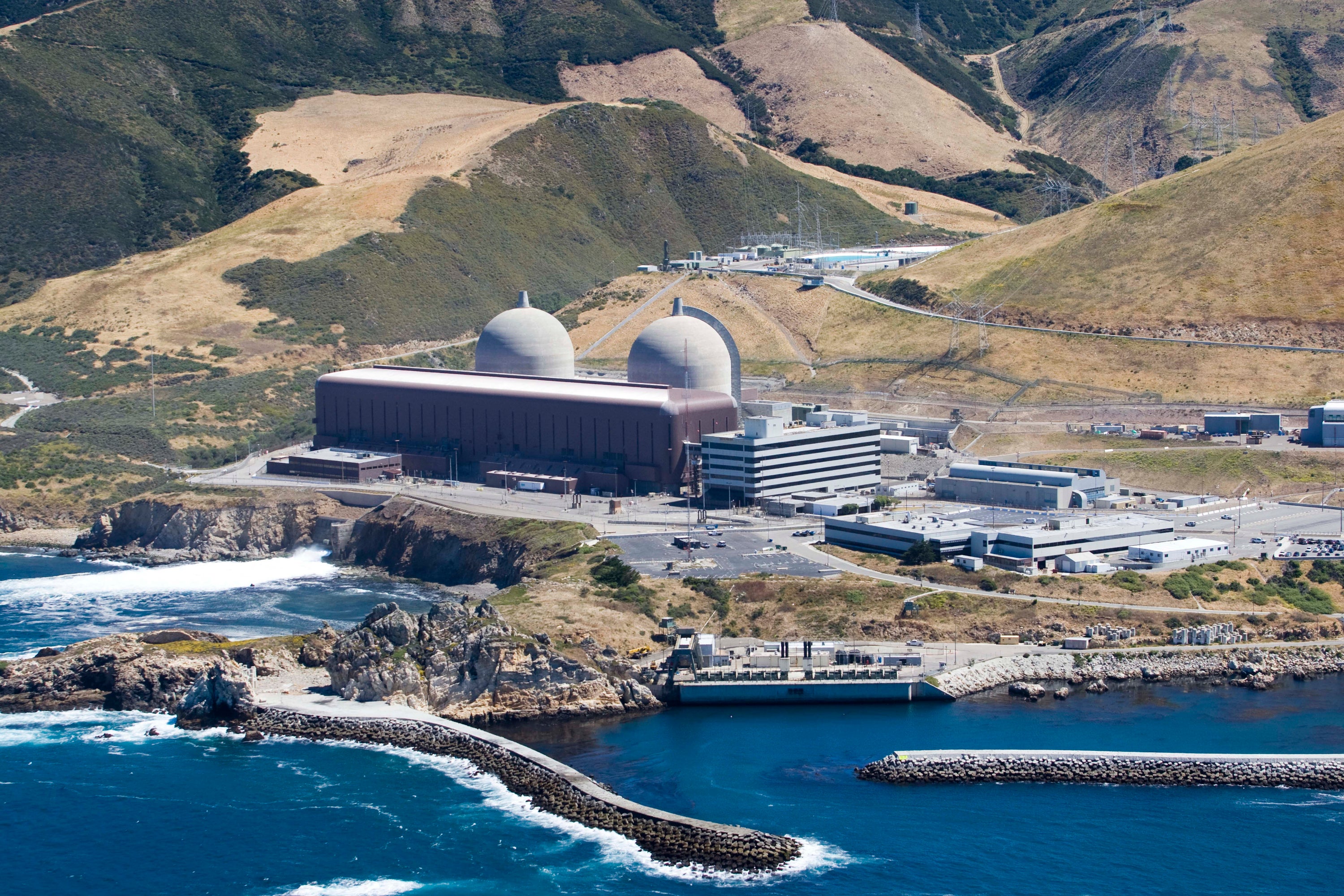Lawsuit seeks to uphold closing California’s last nuke plant
An environmental group is suing to block efforts to extend federal operating licenses for California's last nuclear power plant

Your support helps us to tell the story
From reproductive rights to climate change to Big Tech, The Independent is on the ground when the story is developing. Whether it's investigating the financials of Elon Musk's pro-Trump PAC or producing our latest documentary, 'The A Word', which shines a light on the American women fighting for reproductive rights, we know how important it is to parse out the facts from the messaging.
At such a critical moment in US history, we need reporters on the ground. Your donation allows us to keep sending journalists to speak to both sides of the story.
The Independent is trusted by Americans across the entire political spectrum. And unlike many other quality news outlets, we choose not to lock Americans out of our reporting and analysis with paywalls. We believe quality journalism should be available to everyone, paid for by those who can afford it.
Your support makes all the difference.An environmental group on Tuesday sued to block Pacific Gas & Electric from seeking to extend the federal operating licenses for California’s last nuclear power plant.
A complaint filed in San Francisco Superior Court by Friends of the Earth asks the court to prohibit the utility from sidestepping its 2016 agreement with environmentalists and plant workers to close the twin-domed Diablo Canyon Nuclear Power Plant by 2025.
The possibility of a longer operating run emerged last year after Democratic Gov. Gavin Newsom and the Legislature opened the way for PG&E to seek an extended lifespan for the twin reactors. The company intends to apply to the Nuclear Regulatory Commission by the end of the year to extend operations by as much as two decades.
The operating license for the Unit 1 reactor expires next year and the Unit 2 license expires in 2025.
Hallie Templeton, legal director for Friends of the Earth, said in a statement that “PG&E has been acting as if our contract has disappeared.”
California is the birthplace of the modern environmental movement that for decades has had a fraught relationship with nuclear power, which doesn’t produce carbon pollution like fossil fuels but leaves behind waste that can remain dangerously radioactive for centuries. The Newsom administration is pushing to expand solar power and other clean energy, as the state aims to cut emissions by 40% below 1990 levels by 2030.
Newsom’s decision last year to support a longer operating run for Diablo Canyon shocked environmentalists and anti-nuclear advocates because he had once been a leading voice for closing the plant.
PG&E said in a statement it had not yet seen the lawsuit, but that as a regulated utility will follow state policy.
The lawsuit marks the latest development in a long-running fight over the operation and safety of the decades-old plant, which Newsom says should keep running beyond 2025 to ward off possible blackouts as California transitions to solar and other renewable energy sources.
Diablo Canyon produces 9% of the state’s electricity.
At issue in the lawsuit is how a complex 2016 agreement figures in the Legislature’s decision reverse itself and to try and keep the reactors running. At the time the agreement to wind down Diablo Canyon was made, California utility regulators, the Legislature and then-Democratic Gov. Jerry Brown agreed to the closure.
The complaint describes the 2016 agreement as a “contract,” and asks the court to find it binding. It also asks for an order prohibiting PG&E from violating the contract.
“PG&E acts as if it has no remaining contractual obligations,” the complaint said, while asserting that the utility still has a responsibility to retire the nuclear power plant on schedule.
It’s not clear if the reactors will continue operating beyond the expiration of their 2024 and 2025 licenses — and if so, for how long — since many regulatory milestones and unanswered questions remain. Last year, PG&E CEO Patricia “Patti” Poppe warned that the “permitting and relicensing of the facility is complex and so there’s a lot of hurdles to be overcome.”
For example, it's not yet publicly known what it will cost to update the plant for a longer run given that the company was preparing to close it for years. The state could consider backing out if capital costs climb over $1.4 billion and a string of state agencies also has to review extending the plant's lifespan.
Construction at Diablo Canyon began in the 1960s. Critics say potential shaking from nearby earthquake faults not recognized when the design was approved could damage equipment and release radiation. One fault was not discovered until 2008. PG&E has long said the plant is safe, an assessment the NRC has supported.
The U.S. nuclear industry has been through a tough stretch, with reactors retiring and its share of energy production slipping since 2012. But many industry leaders see a renaissance on the horizon, as climate change has brought attention to carbon-free power.
The Biden administration last year launched a $6 billion effort to rescue nuclear power plants at risk of closing, citing the need for nuclear energy as a carbon-free power source that helps to combat climate change.
The lawsuit also named labor groups from the plant that were involved in the 2016 agreement as defendants, including the Coalition Of California Utility Employees.